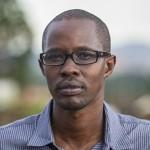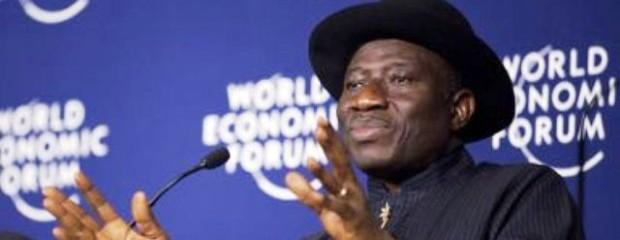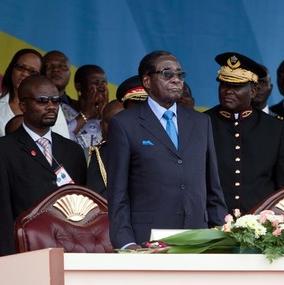Family therapy: Dynasty and change in Uganda – By Angelo Izama

 If it were not such serious business, Uganda’s present political drama would make a great plot (with cast included) for a TV drama series entitled The Real Housewives of the Revolution. Recently, the First Lady “Mama” Janet Kataha Museveni took to twitter to announce that she would not be seeking re-election in her Ruhaama constituency, leaving political watchers aghast as to how she would be able to wield her considerable influence on the political stage.
If it were not such serious business, Uganda’s present political drama would make a great plot (with cast included) for a TV drama series entitled The Real Housewives of the Revolution. Recently, the First Lady “Mama” Janet Kataha Museveni took to twitter to announce that she would not be seeking re-election in her Ruhaama constituency, leaving political watchers aghast as to how she would be able to wield her considerable influence on the political stage.
A national figure in her own right and member of her husband’s cabinet as Minister for the Karamoja region (a role she will also be giving up in 2016), Mrs Museveni’s real influence is felt within the business community, government institutions and in the security services. It would not be far-fetched to imagine her own bid for the Presidency next year or in the election thereafter.
According to one source, senior members of the National Resistance Movement (NRM) have been privately briefed to keep the possibility of her candidature on the cards in a fluid pre-race environment defined by the defection of the party’s most senior official, former Secretary General Amama Mbabazi.
Until his very public estrangement at the end of 2014, Mbabazi (a loyal technocrat and political operator) was seen as the default successor to Museveni. His decision to stand against Museveni has created near pandemonium within the establishment. It has also spurred renewed efforts within the official opposition to close ranks around a common strategy for the election.
Mbabazi and Museveni do not only represent the revolutionary elite who have run the country for nearly 30 years, but also a new political aristocracy whose hold on the state is also one of entitlement owed to that history. According to the journalist Andrew Mwenda, publisher of the Ugandan Independent magazine, it was the failure of Mbabazi to win the support of the Mrs Museveni, her son Muhoozi Kainerugaba (head of Uganda’s elite Special Forces), and Museveni’s brother General Salim Saleh (a key figure in the defence sector), that drove a wedge between the President and his now most serious challenger.
Mbabazi is also the doyen of a powerful and influential family. It was his wife, Jacqueline Mbabazi (Chairperson of the NRM National Women’s League) who came out as the most vocal defender of her husband’s right to offer the party alternative leadership when the rivalry between the two men resulted in his sacking as Prime Minister and removal from the post of NRM Secretary General.
At the time of Mbabazi’s fall from grace, reports detailed extraordinary anger, insults and spite within the personal relations of the these key actors; a testament to their great influence on matters of state and to Uganda’s political transition. Mrs Museveni will likely also bid for the Chairmanship of the NRM Women’s League when the party’s delegates conference gets underway in August. At the same event Mr Mbabazi is expected to ask delegates to choose him over Mr Museveni as the next head of the party and future President.
As the elections approach, Uganda’s political crisis looks more the business of a divorce lawyer than family therapist with reconciliation between the families a distant prospect. The analogy of divorce is most alive on the streets and boardrooms and within the NRM itself, where loyalty to the families has become a standard test for alliances ahead of the poll. In the fight for delegates prior to the party primaries, the patrons and their supporters are flooding the system with cash and threats.
One of the key institutions that Uganda watchers abroad will keep an eye is the national army. The UPDF – sometimes described as “an army with a country” – and its sister intelligence agencies are the first-born in this divorce drama.
Until the split between Mr. Mbabazi and Mr. Museveni, their main political opponents came from the military. These include retired Colonel Dr Kizza Besigye, the President’s former personal doctor, whose wife Winnie Byanyima, now head of Oxfam International, served as a military aide to Mr Museveni. The current leader of the Forum for Democratic Change (FDC) is retired Major General Mugisha Muntu, whose reign as army commander (1989 – 1998) was one of the longest in the country’s history. These military men have contributed to the narrative that only a strong man can rule or pose a significant challenge to Museveni’s domination of the army and the government.
Mr Museveni was once described as the “centre of gravity” within the state by General David Tinyefuza, another defectee turned political opponent, who was briefly detained in the last two weeks. Tinyefuza had only recently returned to Uganda after a period of exile in the UK following a letter leaked to the national newspaper, The Daily Monitor, alleging that the president was preparing to hand-over power to his son Muhoozi (popularly known as “The Muhoozi Project”).
After Mr Mbabazi’s declaration, sources say meetings at command level were held at the army’s headquarters in Bombo. These are reported to have focused on how the military could reinforce the Uganda police in case of street level protests. The army also supervises a large, loose but politicized collection of civilian-military forces recruited for purposes of fighting crime, assisting in community safety and elections. They also include military style “˜Patriotism Clubs’ aligned to the NRM, and a significant veteran population who mostly support the party and were feted by Mr Mbabazi when he was still Secretary General of the movement. Suffice to say their support will be mostly for Museveni.
How the security establishment will respond to a bruising contest is anyone’s guess. The Uganda police have conducted several arrests of Mr Mbabazi’s supporters and seized t-shirts and other campaign items. Sources claim too that a container of smart-phones, intended for use by the team coordinating his countrywide campaign as well as vehicles and other paraphernalia, have been confiscated. Mr Mbabazi has protested but it is unclear how he can effectively respond.
Mr Museveni retains another crucial advantage: his highly-respected position as the founder of the movement. Within the security services support and loyalty to the “˜old man of the revolution’ is solid, emotional and will rally loyalists to the cause if he is seen as vulnerable and in need of protection. It’s a trump card that Mr Museveni can always play.
The professional army too is keen on order and progress. With success and respect within the region as a competent force in conflict theatres such as Somalia, South Sudan and Congo, the stakes are high. With so much at stake, Uganda’s current political crisis remains a long way from turning into a security crisis. The leading rivals, whilst vigorously asserting their right to lead the country from 2016, remain unlikely to lead their personal and family conflicts to a place that endangers their own historic roles in the revolution.
Angelo Izama is a writer and journalist.






